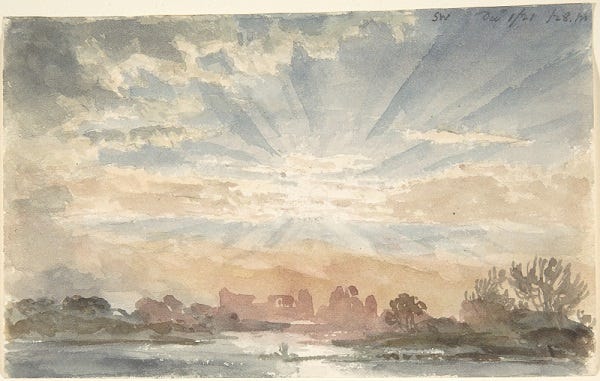
Some years ago, I sat in an Elders Quorum lesson where the instructor began with the story of a group of what he called “intellectuals:” several young, smart, and educated couples who had begun meeting to discus the gospel intellectually, propound theories, etc. The story ended with he couples engaging in what the older man giving the lesson called “wife-swapping” and everyone involved either voluntarily leaving the church or being excommunicated (back when it was still called that). After the lesson was over, a friend leaned close to me and asked, “Why do we have to be so anti-intellectual in this church?” We two smart, educated newly-weds resolved to discuss the question at length privately.
This ironic tale does not have a tragic ending (yet!) and I try to keep it in mind as much as I can to make sure it never does. But I think it gets at something I see in the Come, Follow Me reading this week, which I have taken to calling the limiting principle of seeking revelation. It is this: “That which is of God is light; and he that receiveth light, and continueth in God, receiveth more light; and that light growth brighter and brighter until the perfect day” (D&C 50:24).
This last phrase, “until the perfect day” indicates that there is some kind of stopping point here, a place where we have received enough light. That point is the perfect day. Perfect, in this case, meaning whole, complete, or full. We can interpret the image here as a sunrise. First it is fully dark, then the light gradually increases until the sun is completely up and it is fully daytime. Extending this image, there is eventually a point where it starts to become evening, the perfect day has passed, and darkness returns. Taken together, these images indicate that we are to seek light from God, but that there is a point where we are at the “perfect day” and that if we keep going past that point, darkness will return.
This sits uncomfortably with some of the ways we often talk about progression and learning in the church, even with some of the ways the scriptures talk about them. Nephi is one of the most blunt on this: “Wo be unto him that saith: we have received, and we need no more!” or, more specifically, “Wo be unto him that shall say: we have received the word of God, and we need no more of the word of God, for we have enough!” (2 Nephi 28:27,29). Isn’t the whole point of revelation that it comes “line upon line, precept upon precept, here a little and there a little?” (2 Nephi 28:30). Isn’t the whole point of the gospel eternal progress, not progress to a predetermined point? Isn’t stopping progress the literal definition of damnation? So why is there a claim that we are only supposed to receive light “until the perfect day?”
Ultimately, there really is a tension and a balancing here, like with many truths. And that tension is exactly what has made this such a difficult issue that it has been addressed time and again in the scriptures. And there are some further indications in the scriptures that can help us make sense of how to prove this contrary. For example, the line “brighter and brighter until the perfect day” is an allusion to some verses in the book of Proverbs: “the path of the just is as the shining light, that shineth more and more unto the perfect day. The way of the wicked is as darkness: they know not at what they stumble” (Proverbs 4:18-19).
The comparison with darkness and wickedness here is telling. The light on the path of the just makes it possible to see your surroundings, avoid obstacles, or, as a last resort, see what is making you stumble and learn to avoid it later. Thus, the point that D&C 50 is trying to make seems to be more about using light to illuminate what progress still needs to be made while avoiding obstacles. This reading fits with the larger purpose of Section 50, which is about discerning evil spirits. The point of the limiting principle of seeking revelation is that we need to abide in God’s light to truly see, rather than continually searching for other potential sources of light. The limiting principle is God himself.
And don’t worry, this all ties back to my friend and me at the beginning. One of the main dangers of intellectualism in the Church is the restlessness that is central to most academic inquiry. Instead, God invites us to rest. His day of rest is a central sign of His people. He invites us to find peace, to abide, to build a home with Him. Untethered from faith and spiritual practice, intellectual curiosity will only lead beyond the perfect day and back into darkness.



